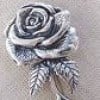HubPages Tips: creating an effective URL
There seems to be a bit of confusion as to the most effective URL naming protocol and to make matters a little more complicated, I strongly belief that the hub claiming system that is in place is making things a little... messy,
Lets look first at the most common methods of URL structure. Here we three contenders:
1. hubpages.com/hub/theurlisalloneunbrokensentence
2. hubpages.com/hub/the-url-is-separated-by-hyphens
3. hubpages.com/hub/the_url_is_separated_by_underscores
Let me first say, I personally don't believe that any have a clear advantage, in terms of SEO, over any other. Yes, there are arguments for and against each, but search engines can figure each and every one of those out. Combine any of those with a corresponding or even a slightly different title, and the results should be the same. In fact, you could have hubpages.com/hub/page-one-of-fifty and as long as your title is top notch, you shouldn't be greatly disadvantaged. At least when it comes to search engine indexing.
If you do a search on Google to find out which is the best, you may find some will say that search engines recognise the hyphen as a space, but not so much for the underscore. but Wikipedia have always used underscores. And last time I checked Wikipedia pretty much dominated the SERPS.
For me it comes down to personal taste. I like it short and sweet. I'll explain why in a minute. So if I'm going to have one word, it's of course going to lack hyphens or underscores. If it's going to have two words... I'm a little torn. runthemtogether? Or divide-them-apart?
If it's three or more words, I opt for hyphens. Because I'm thinking visually, it's easier for a person to understand the sentence when there's a 'space' between each word.
Okay, back to why short and sweet?
I have a hub titled "Cool Fonts - Where to Download & How to Install".
Now I have claimed the URL hubpages.com/hub/cool-fonts-where-to-download-and-how-to-install
But I didn't.
I went with hubpages.com/hub/fonts
The reason I did it that way is that via word of mouth "hubpages dot com slash hub slash fonts is a lot easier for a person to say to another person "here's a cool place to find free fonts!"
Occasionally on the radio you'll hear a host mention a website or even a whole URL. I think it's happened at least once with a hub if I recall correctly. Not mine, but someone else.
Can you imagine the radio host saying "hubpages dot com slash hub slash cool hyphen fonts hyphen where hyphen to hyphen download hyphen and hyphen how hyphen to hyphen install"?
Bit of a mouthful!
If a person is emailed hubpages.com/hub/cool-fonts-where-to-download-and-how-to-install it explains the content a lot better than hubpages.com/hub/fonts and it's far more readable than hubpages.com/hub/coolfontswheretodownloadandhowtoinstall but I am prone to having fantasies that people will mention my hub in conversation. Well I do. As I am probably the designated geek for a radius of 100kms where I live people do ask me about computer viruses and fonts and other computer related stuff, so I tell them "hubpages.com/hub/fonts!" (and just quietly, I don't even mention I wrote the hub on it).
I don't stick to one hard and fast way of doing things. It depends on whether or not I can get the short and sweet URL or if it's appropriate. hubpages.com/hub/antivirus wasn't available so I went with hubpages.com/hub/free-antivirus-software a bit more of a mouthful to mention, but I've emailed that quite a few times after people have asked if I know of any free anti-virus protection. I'll get their email address and when I get home I'll send it off. With a bit of luck it could also spread via word of mouse... that the person forwards the email to their friends.
Now onto the next bit... the part that really disturbs me.
I see hyphens in hub URLs but FAR TOO MANY hyphens.
When typing in a title when creating a new hub the system automatically gives a person a URL. Which can be changed, but who does?
That means that my hub hubpages.com/hub/augustus which is titled "Roman Emperor - Augustus" comes out like this:
hubpages.com/hub/Roman-Emperor---Augustus
If my title were "Roman Empire: Emperor - Augustus" it would look like this by default:
hubpages.com/hub/Roman-Empire--Emperor---Augustus
It's going to be a bit of mouthful with a "hyphen hyphen" and a "hyphen hyphen hyphen" in there.
So think about what's happening. A space becomes a hyphen. A hyphen becomes a hyphen. A : becomes a hyphen. I think maybe even a period becomes a hyphen.
Also, I much prefer lowercase for the entire URL. That's my personal preference. But also be aware that when some people repeat an email or a webpage they'll make an effort to tell the person listening (and I've heard it over the phone or in the office) the capitals. Even though it doesn't effect email addresses or most webpages.
For instance, a person says to another that their email address is MyName@hotmail.com and an email to myname@hotmail.com will work, but they'll specifically spell out the whole email WITH the capitals: "capital m, y, capital n, a, m, e" instead of "myname".
Some systems of old needed the right, specific string of characters for the mail to get through, but 99% of the time nowadays it doesn't matter. And when I tell people "myname@hotmail.com" will work I'll get told "no, it has to be this way!".
The same applies to webpages. And seeing that hubpages doesn't NEED a person to get those capitals right for the webpage to resolve properly, avoid confusion by not having it in there in the first place.
Keep it meaningful, as a matter of habit. Keep it lean, if you want. But certainly keep it clean. When I tell or email a person a hub (whether it be mine or someone elses) I don't want any mistakes. I want the person to get to the hub with a minimum of fuss! So put some thought into it early, because it's the first thing you've got to do when you're building a hub.
PS: If you've got existing URLs that are a bit of a mess, don't worry about it. Just move onward and upwards.Good point. I seem to have written a lot of words!
You can still write a hub on this if you choose to do so. I know when you start writing, you don't realize how much you have written until afterwards. Everyone has a different opinion on what works and what does not when it comes to URLs. Personally I like short and sweet.
As always I enjoy reading your insight Darkside.I always learn something.Something that I found when setting up my website and trying to keep the domain name relevant to the site was that i had to use hyphens as all the other names i wanted were taken.But I agree with what you stated.The only time i would encourage hubbers not to use no spaces or hyphens is when the words joined together form another word and i understand this may confuse the search engine eg.properties for knots instead of proper-ties-for-knots.
Great info, as always, Darkside. But I have to provide some clarity to one of your statements. You said that the 3 URL naming conventions didn't have any clear SEO advantage. Well, now pigs are flying overhead because again, I beg to differ.
I started with my current company about 3 years ago. I noticed pretty quickly that while the website homepage was getting great traffic and folks were traveling through to the interior pages, the interior pages weren't showing up in Analytics under top landing pages. And, our programmer had opted to use underscores rather than hyphens in our interior pages' URLs.
I then did a bit of research, read everything Matt Cutts had ever said about it and voila. I found an interview he did back in 2005 where he talked about all of the reasons you shouldn't use underscores. And I know 4 years is infinity in Google's eyes, but it still holds true. Google views the underscore as a nonentity, meaning that your #1 and #3 example are seen by Google as the very same.
I had my programmer change all of our URL's from underscores to hyphens and it seemed like overnight, our interior pages were ranking and drawing traffic. Clearly at least in my experience, #1 and #3 are bad.
And I would like to add that people should never use capital letters. Lowercase letters are viewed by Google as being universal. So "cat" equals "Cat". But to Google, it doesn't work in reverse. "CAT" equals "CAT" only -- not "Cat", not "cat".
This all happened about a year ago and the world may have changed since then, but even our SEO guy was completely surprised at viewing the results from our simple changes.I had runtogether words on a domain that ranked in the top 3 searches for the word 'babes'. It took a while to get up there, but was up there for a few years. I gave the site a complete overhaul and used hyphens and almost overnight I dropped like a rock.
It could have been that or a combination of other reasons far out of my control, I'll never know really. But I'm saying that one does not have a clear advantage over the others. There are too many examples in favour of each to hand over an award. There will be other areas where some things are better over others, or where one way is right and another way is clearly wrong. But I believe in this regard we are talking about a photo finish.
If I were to argue in the favour of any, and I'm not, I'd say that underscore is best. Wikipedia certainly isn't suffering for it.
For me I have been opting for hyphens (when I'm not trying to go for as short as I can). For the simple fact that a hyperlink in an email or forum post that is underlined will still let people know what the URL is because the underline tends to disguise the underscore.
You raise a good point about lowercase being universal. Which is the main thrust of this thread. I think people need to keep it neat and tidy and avoid the extra hyphens.
When I claim a URL I'm copying and pasting my chosen URL (or in some cases typing) as the title. And I change the title later when I'm in edit mode of the hub draft.Interesting stuff. All I know is that without making ANY other changes, changing our interior pages' URLs from underscores to hyphens gave us a 40+ plus traffic hike that has stayed true 3 years later. Not sure I'd call that a "photo finish".
And not just that, but it was our interior pages' URLs that originally were underscored and changed to hyphens that gave us the marked difference. They weren't even being indexed before. Oh, did I mention we didn't do ANYTHING else besides changing the underscores and the capital letters unlike your example?
So it sounds like the jury is out on run-on URLs, but I would not take a chance and use underscores again. Or capital letters. Why take the risk?40 unique visitors or 40K unique visitors?
I saw a difference of 3,000+ unique visitors a day. But I'm not using that as proof of hyphens being the suck.
There is a chance that the overhaul for you meant fresh fodder for the search engines. You could have used anything and it would have made the search engines sit up and take notice.
If it's just 40 unique visitors a day, and on only one site, I wouldn't use it as conclusive evidence of it being in favour of hyphens being the winner.
The right choice of keywords will weigh far heavier towards a persons search engine success.40k. That's why our SEO guy was so taken aback. And....we didn't do ANY overhaul. None. Zip. Zero. Zilch. All we did was change the underscores to hyphens. No content or metatags were changed. Nothing.
40,000 unique visitors a day certainly is impressive. I wish I had an increase of 3k a day than lose 3k a day. As we both effectively did the same thing. Though I went from runtogetherfilename to hyphens and you guys went from underscore_filenames to hyphens.
How many pages were involved in this overhaul?Good Lord, hundreds. Although we are a niche biz. It was a jump of 40k/month -- not per day -- which is terrific for our industry.
No, no. Not 40k/day -- it was 40k/month! Hundreds of pages. The site's quite old.
Are you people talking about URL tracker too? actually I don't know how to apply it can I ask an explanation also about it? Seems darkside is very patient in explaining. Thank you.
Nothing to do with the URL tracker. That's a whole other discussion. To bring you up to speed on that read How HubPage Tracking Works.
I can vouch for this. I've also made the mistake of claiming a URL and unknowingly capitalizing every first letter, then linking to the all lowercase version outside of that website. For some reason, it seems like Google treats them like two different URL's (capitalized and lower case).
I run into it all the time here on Hubpages as I let it auto fill in the hyphenated URL instead of changing it.
Good advice, I always try to shorten my url as much as possible and I try to make it my keyword phrase, if that is taken I choose another keyword phrase. I almost never use my whole title as the url, unless of course its a short title with my keyword. Shorter = better
Thanks-so-much-for that_I learned a lot.
I really appreciate your sharing such helpful information.
I guess established URL's on HubPages cannot be changed (outside of copying, removing and reformatting the whole article).
You have given some good reasons to give more thought to that little line of code.This is interesting because I've read that the underscore is represented as a space and not the hyphen.
I think that people can drive themselves mad trying to figure out SEO (me included) and focusing on providing good content may be the actual best way to get the attention of the search engines.Could have just been coincidence. I agree that overall there is no evidence in ALL situations that any one of the three examples are better than another. Just short and sweet and to the point is always best.
I prefer hyphens, but will use an underscroll if I can't get a url that I want with the hyphen. It's never hurt me.Darkside - sorry to mess with your preference for short and sweet URLs...
... BUT Google are testing a new version of their search engine, and have released it for developer preview, and from my early tests the engine wants you to have the entire keyword string in the URL. See the hub I've made on Google Caffeine to test this out for yourself.
Google eh! You finally come to a conclusion about how they work, and they change things on you.I'm with Darkside - I prefer short and sweet.
The main reason is for promotion. If you're posting a link on a forum, where you have to post the actual link rather than hyperlinkined text, a long URL is often TOO long, so you only see half the URL, tailing off in ... Often you can't even see the meaningful bit of the URL, and it looks disturbingly like a spam link.
A short URL is more likely to appear in full and look like a legitimate link, which people are more likely to click on.
I also find it useful, as Darkside says, if you're in conversation and want to refer someone. In fact, that's why I tend to use run-on URL's instead of hyphens.
I avoid underscore for the reason already mentioned - when it becomes a hyperlink the underline obscures the underscore. If someone then tries to type in the link from memory, it won't work.I agree with your analysis of url choices. I wish I had been a little more savvy at the beginning. Some of my better hubs were written early on before I wised up to the wisdom of a little brevity. Thanks.
Related Discussions
- 31
HubPages Tips: Using keyword research to make a good Hub great!
by Ryan Hupfer 15 years ago
I was looking through a few of the HubChallenge Hubs and I wanted to give you all a little advice on how to use the Google Keyword Tool to give your high-quality Hub it's highest traffic and earnings potential possible. I used a current HubChallenger's Hub as an example (Jane@CM I hope you don't...
- 47
HubPages Tips: General
by Glen 16 years ago
These will no doubt be covered and recovered and already taken for granted by most, but here are a few stray thoughts I've herded together...30 Hubs in 30 Days HubChallenge Tips* Start whenever you want. Though a group of us will be setting sail on Friday 24th.* If for whatever reason you're unable...
- 58
HubPages Tips: How to find a FANTASTIC Hub topic
by Ryan Hupfer 16 years ago
As promised here in my first HubChallenge forum post, I'm going to be using the time that we have until the official start of the 30 Hubs in 30 Days HubChallenge (on this Friday, July 24th) to help all of you publish Hubs that have the most opportunity possible. For this first day I decided to...
- 10
How much do URLs matter to search engines and hub views?
by Dani Merrier 8 years ago
I take out all the hyphens when I make my URl for my articles. To me it just looks nicer. For example (not a real hub) hubpages.com/notarealhub is what I would use as opposed to the recommended hubpages.com/Not-a-Real-Hub which to me looks really ugly.However, I've begun to notice that pretty much...
- 23
KNOWN ISSUE: Authorship for subdomain only [see http://bit.ly/10GIBdz]
by Dilip Chandra 12 years ago
Why my hub url in google is appearing like the following; http://hubpages.com/hub/Basic-Terms-in-AccountingInstead of appearing like this; http://dilipchandra12.hubpages.com/hub/ … Accounting--- Almost all the hubs of mine are having the url appearing (changed) in the same lines.Here is...
- 19
Hi, I am new to Hub and would love an informed opinion please.
by Aiden Roberts 15 years ago
Hi there,I stumbled across Hub pages today for the first time, what a fantastic site; I am hooked already.I couldn't resist having ago so sat down and wrote 2 hubshttp://hubpages.com/hub/BasicPuppyTraininghttp://hubpages.com/hub/BeatingWritersBlockI have written for a number of years but only for...



















![KNOWN ISSUE: Authorship for subdomain only [see http://bit.ly/10GIBdz]](https://usercontent1.hubstatic.com/12606894_f248.jpg)
